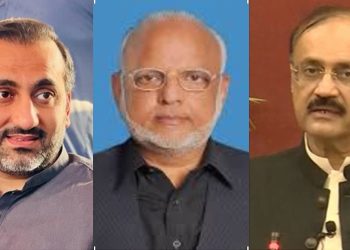ISLAMABAD: The Financial Action Task Force (FATF) on Friday decided to keep Pakistan on its ‘grey list’, with the country’s status set to be reviewed next at an extraordinary plenary session in October 2021.
The country has to work towards complete implementations till the next FATF plenary meet that will take place from 17th to October 22. Announcing the decision, FATF President Dr Marcus Pleyer said, “Pakistan has made significant measures and it has largely addressed 26 out of 27 measures.”
“Pakistan remains under increased monitoring list. The Pakistani government has made substantial progress, making its counter terrorism financing system stronger and more effective,” FATF President Dr Marcus Pleyer said while addressing a press conference.
He further said Islamabad has largely addressed 26 of 27 items on FATF’s action plan. “However, one key item still needs to be completed which relates to the investigation and prosecution of senior commanders and leaders of UN designated terror groups,” the FATF chief added.
However, he said Pakistan is still failing to effectively implement number of measures to effectively curb the practices of money laundering. “This means risks of money laundering remain high which in turn can fuel corruption and organised crime,” he added.
The anti-money laundering body chief further said FATF has worked out a new action plan for Pakistan that largely focuses on money laundering risks. “This includes increasing the number of prosecutions and investigations and also makes sure that law enforcement agencies cooperate internationally to trace, freeze and confiscate assets,” he added.
A couple of days ago Foreign Minister Shah Mahmood Qureshi said that given Pakistan’s recent progress, the financial watchdog had no justification to keep the country on its grey list.
“We had been given 27 points in the FATF Action Plan, out of which work on 26 has been completed,” Qureshi had said, adding that work was afoot to address the remaining item.
Pakistan has been on the FATF’s grey list for deficiencies in its counter-terror financing and anti-money laundering regimes since June 2018.
Until the last assessment, Pakistan was found deficient in acting against organisations allegedly linked to the terror groups listed by the UN Security Council, prosecuting and convicting banned individuals and tackling smuggling of narcotics and precious stones.





































